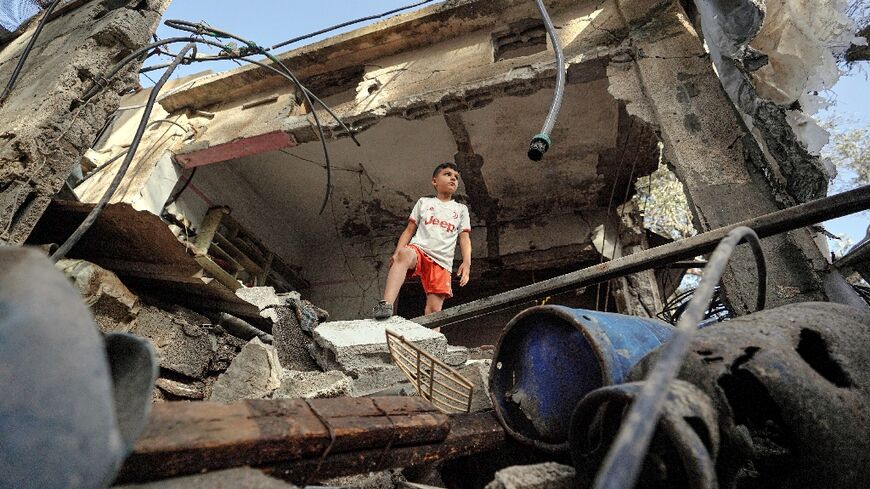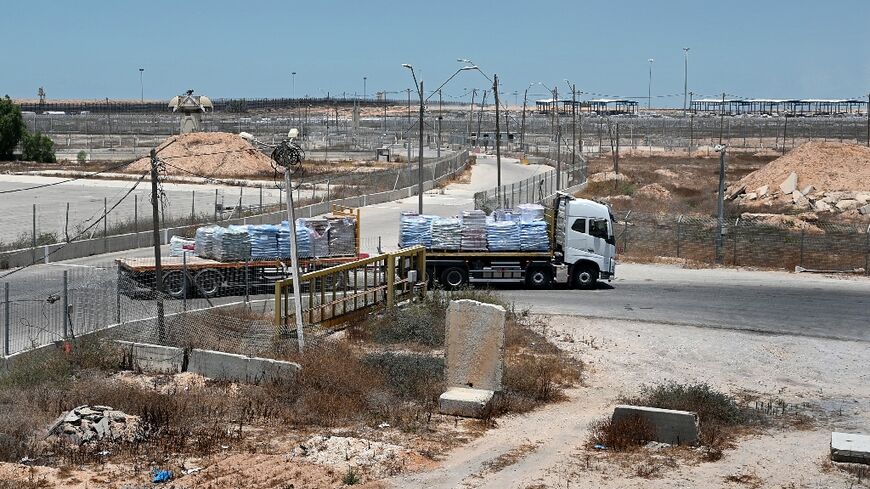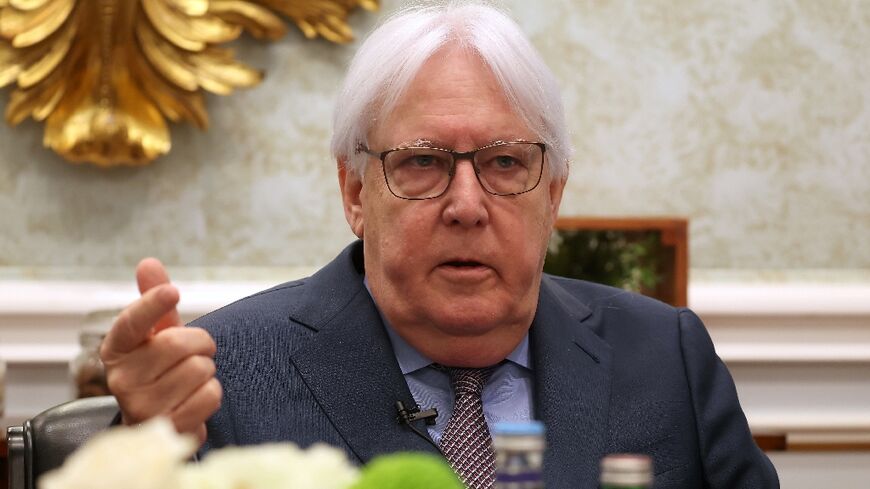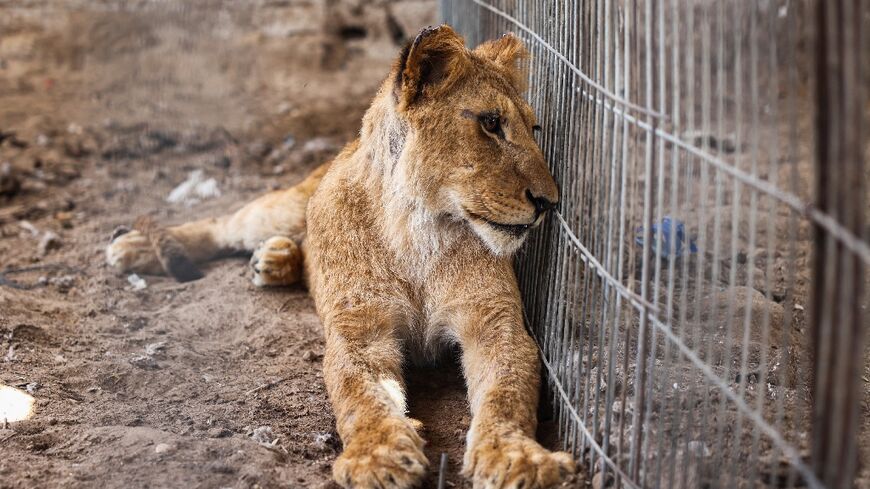UNRWA chief says private sector prioritised at Gaza goods crossing
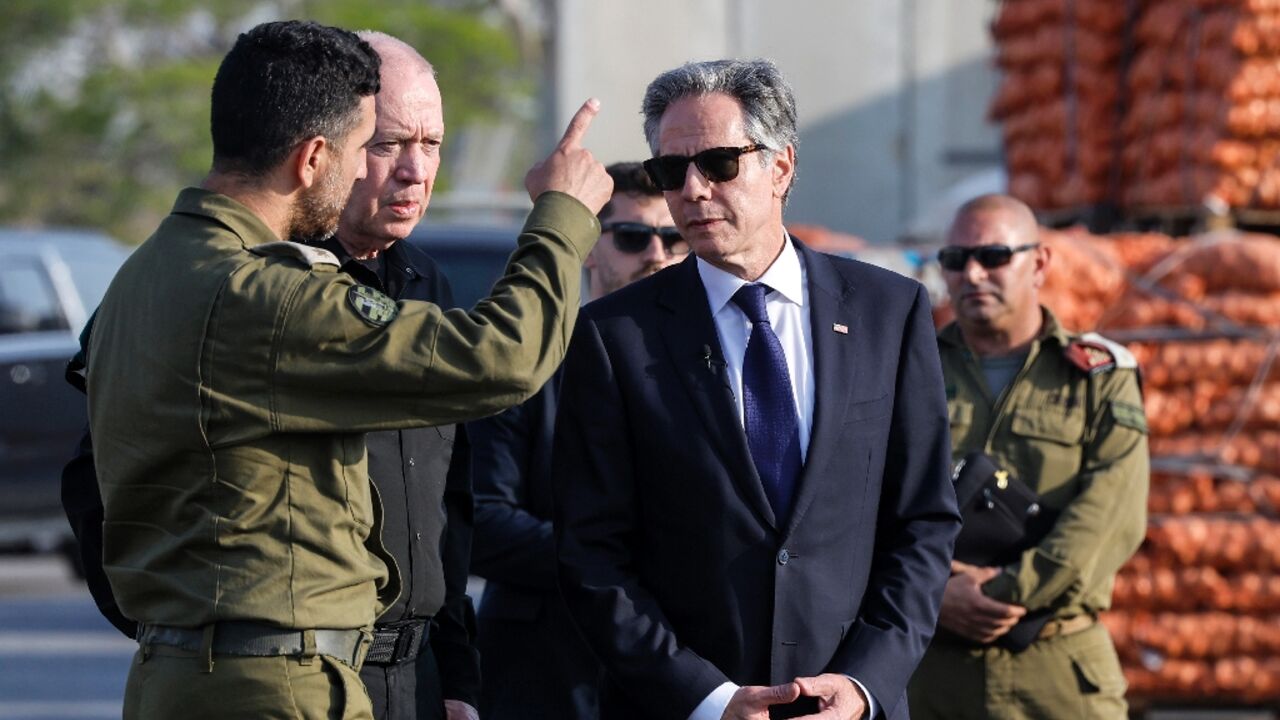
UN Palestinian refugee agency (UNRWA) chief Philippe Lazzarini said Thursday that Israeli authorities are prioritising the private commercial sector at the main crossing point for goods entering Gaza.
"When it comes to the crossing in Kerem Shalom, the private sector for the time being is being prioritised," Lazzarini told AFP, adding that the development had occurred over the past two weeks.
He said the prioritisation took place at the inspections level, with private sector trucks inspected "before any other trucks".
While private goods are "welcome in the Gaza Strip", he said most Gazans are desperate after seven months of war and cannot afford goods at the current market prices.
"We need a combination of both humanitarian aid and market" in Gaza, Lazzarini said.
The number of aid trucks entering Gaza through the southern crossings of Rafah and Kerem Shalom has fallen dramatically in recent weeks, aid agencies say.
An Israeli military operation in Rafah has led to the closure of the Rafah crossing and mass evacuation orders that the UN says have pushed more than 800,000 Palestinians to flee north.
- Food distribution suspended -
The resulting shortages and insecurity prompted UNRWA to announce the suspension of food distribution in southern Gaza, including Rafah, on Tuesday.
"We need to reconstitute our stock to be able to resume distribution in the south of the Gaza Strip," Lazzarini said.
"An offensive is ongoing, many areas had to be evacuated, and moving in this kind of environment is extraordinarily difficult and requires a lot of deconfliction with the Israeli military on the ground," he added.
UNRWA is the main coordinating body for humanitarian aid entering Gaza, and reported 143 aid trucks entering south Gaza since May 6, according to its online monitoring database.
This number sharply went down from a peak of 340 trucks entering the south of the Palestinian territory on May 3, according to the same database.
Now closed and under Israeli military control, Rafah was the first crossing into Gaza to reopen after the war began last October.
Since its reopening on December 21, other routes including a US-funded jetty on the Gaza coast and new land crossings in the north have been established.
A new UN assessment expected next week will provide an updated picture of the humanitarian needs in Gaza.
Lazzarini said the new crossings had provided some relief to north Gaza and "we might have reversed the trend leaning towards famine".
But he added that the Israeli assault on Rafah had led to a deterioration in south Gaza where "there might be some reversal of gains we have made over the last month and a half".
Israeli troops began their assault on Rafah on May 7, dismissing international concern for the safety for the 1.4 million civilians sheltering in the city, most of whom have now left.
The bloodiest ever Gaza war broke out after Hamas's unprecedented attack on October 7 resulted in the deaths of more than 1,170 people, mostly civilians, according to an AFP tally of Israeli official figures.
Militants also took 252 hostages, 124 of whom remain in Gaza, including 37 the army says are dead.
Israel's retaliatory offensive has killed at least 35,800 people in Gaza, mostly women and children, according to the Hamas-run territory's health ministry.


